Garlic is an essential food in our lives. If you live in a temperate climate as I do. Then you can choose soft neck garlic to grow as I do. If you want to grow it on a small scale in your yard, let’s talk about the first step in growing garlic today: picking garlic seeds. Garlic can be grown in large quantities even if you only have a small space. Garlic has few pests and diseases and likes cool weather. We garlic to grow and can store it at home for months. I shared how to choose the best garlic variety for planting.
Hardneck garlic likes cold weather, so it is suitable for some northern areas in the fall. Softneck garlic likes warm, dry climates, so it is suitable for spring planting.
Types of garlic to grow
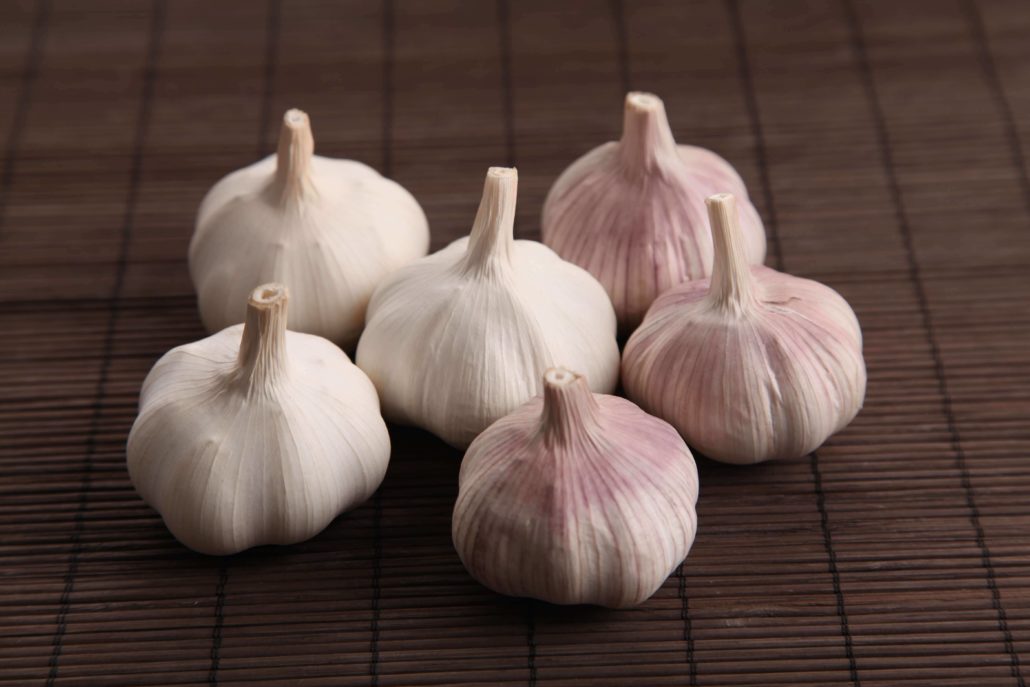
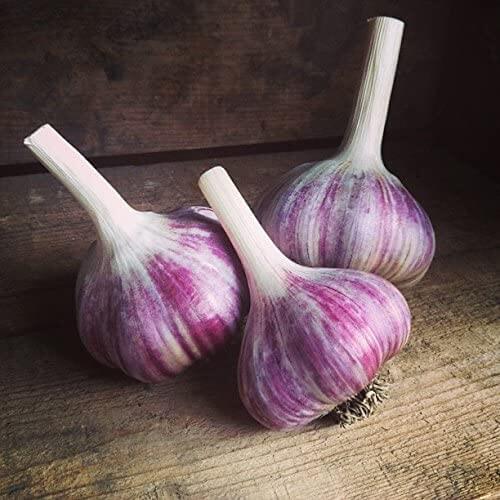
| Softneck types | Hardneck types |
|---|---|
| Artischocke | Purple stripe |
| Silverskin | Glazed purple stripe |
| Marbled purple stripe | |
| Porzellan | |
| Rocambole | |
| Kreolisch | |
| Asiatic | |
| Turban |
Harthalsknoblauch
Hardneck garlic gets its name from the hard stem or neck of the garlic plant. hardneck garlic tends to have fewer cloves than softneck varieties, with uniformly sized cloves surrounding a central stem.
Hardneck garlic includes eight different varieties. Four common ones are listed here:
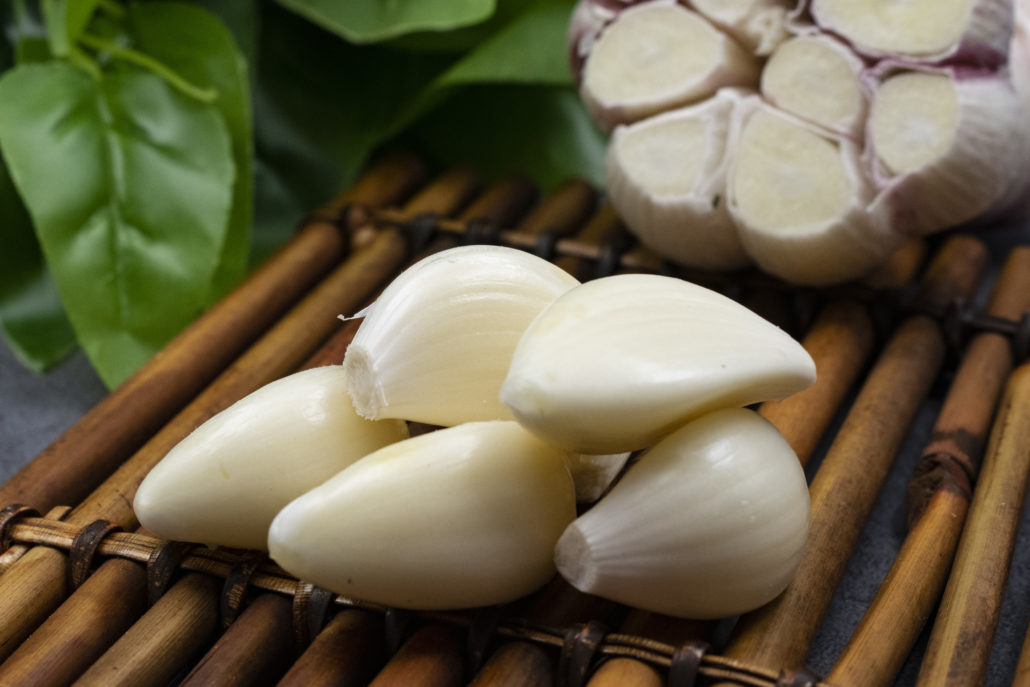
Rocambole:
This is the most commonly encountered type of hardneck garlic, and this variety has thin skin that peels easily.
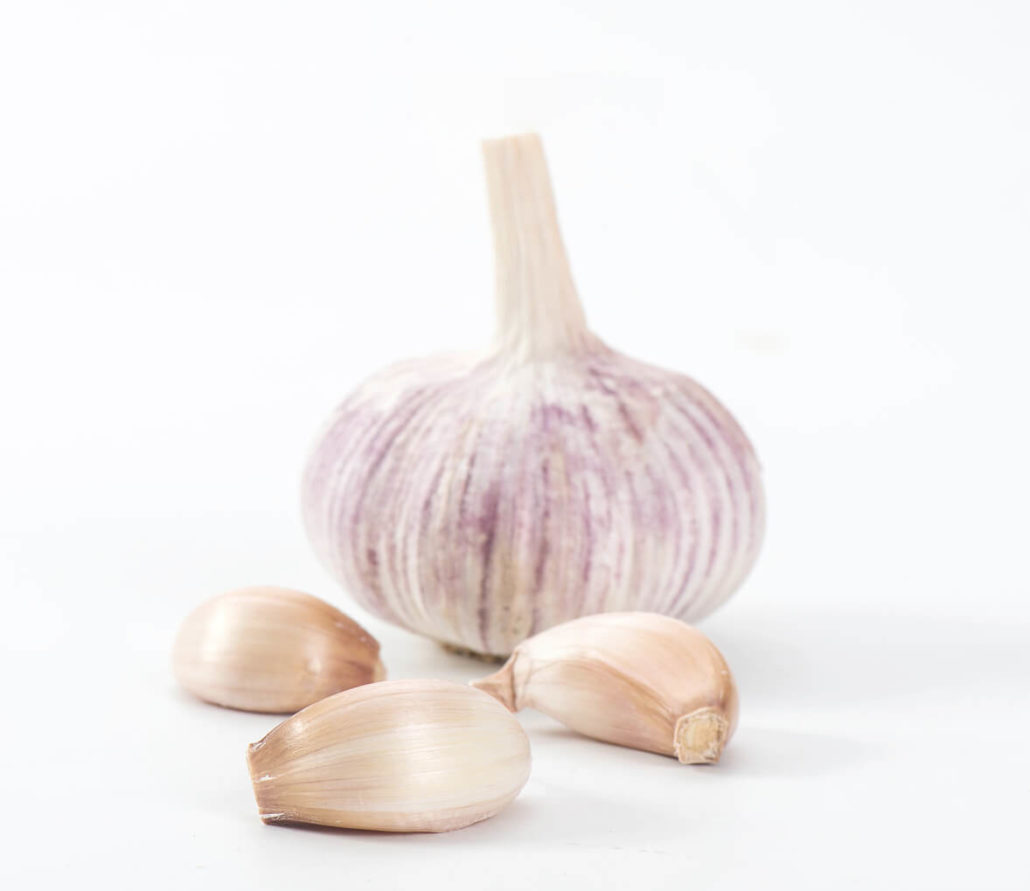
Purple Striped Garlic:
This is a variety of garlic suitable for raw consumption and has a milder flavor. This type of garlic to grow is more resistant to cold and less affected by environmental factors. It generally has a short maturation period, and the average bulb produces 8 to 12 cloves.

Porcelain garlic:
The hardest type of garlic and highly recommended for novice gardeners in cold climates. It typically has only 1 to 2 cloves. It also has a pungent odor and is suitable for baking, not recommended for raw consumption.
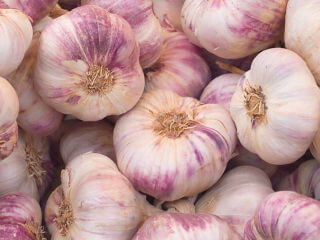
Turban:
This hardneck garlic is an excellent choice for gardeners with a short growing season, as it is one of the first garlic harvested. It is one of the few varieties of garlic that can survive in hot conditions. A typical bulb will typically produce 6 to 10 cloves.

Glazed purple stripe:
This is the best and most authentic flavor of all garlic and is favored by many chefs. On average, each bulb has 8 to 12 cloves. Some also call it red garlic.
Softnecked garlic
As mentioned earlier, softneck garlic is well suited to warm climates. And soft-neck garlic is easier to store and transport than hardneck garlic. It is also the variety of garlic that we eat most often. Whether you import garlic from California or China, it is generally softneck garlic. Under optimal conditions, it can sometimes store soft neck garlic for up to a year after harvest! Two types of soft neck garlic you may encounter include:
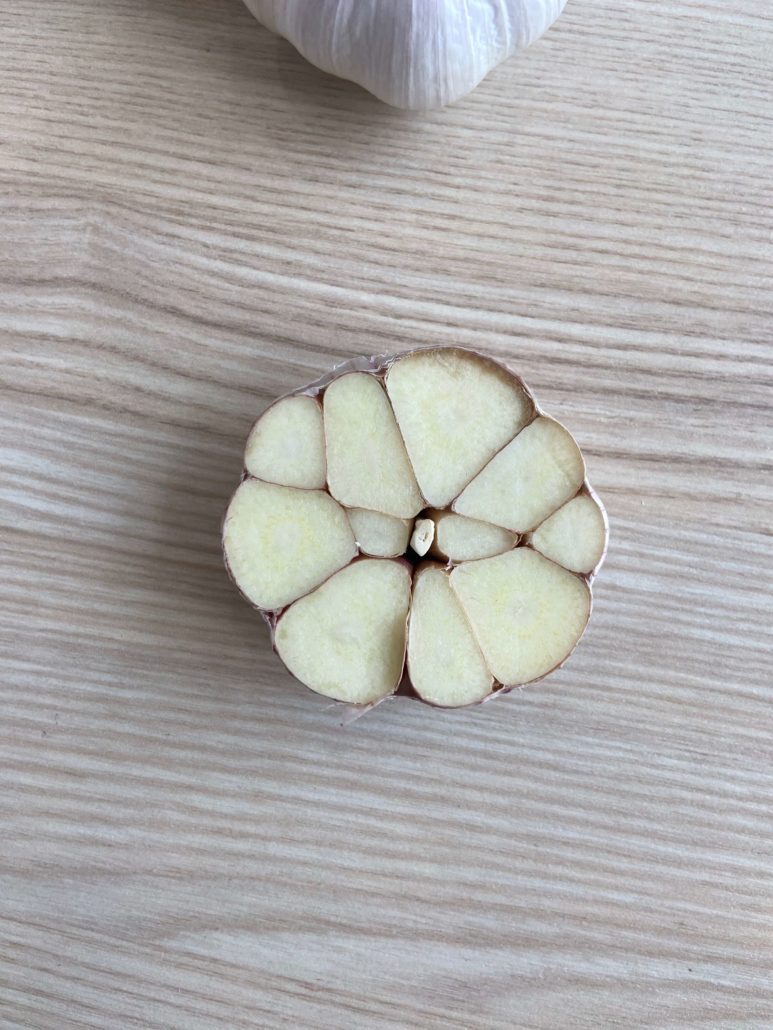
Artichoke:
This is the most common type of commercial garlic. It features multiple concentric rows of cloves that can be challenging to peel. However, it produces and stores well, and this is what you’d find in the supermarket. The artichoke variety ‘Red Toch’ is well-known. The overlapping clove layers of this garlic group are comparable to the structure of artichokes. In 3 to 5 layers, a normal bulb produces 12 to 20 cloves. Artichoke soft-neck garlic variants are the most domesticated of all garlic kinds, and with good reason: they yield consistently huge bulbs and have a simple savory flavor that no one can fault.
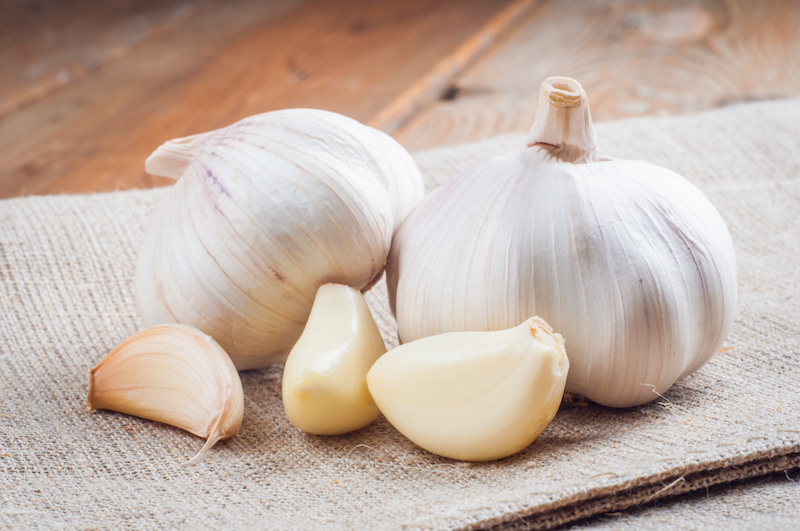
Silverskins:
The exterior peel of this garlic is silverywhite, and there are many little cloves inside. They also have a strong neck that is simple to weave. Artichokes have a richer flavor than silverskins. Silverskins ‘Nootka Rose’ and ‘Rose du var’ are very powerful. Silverskins are one of the newest maturing garlic kinds, but they are also exceptionally productive and tolerant of a wide range of growing circumstances. If you want a garlic type that will yield decent-sized bulbs throughout the summer, they are a wonderful choice for spring planting. A typical bulb contains 12 to 20 cloves.
The best garlic varieties to grow
Knowing what’s available is only half the battle when it comes to cultivating garlic. Finding the perfect type for your garden is the most crucial component, highly dependent on your environment and location.
Choose softneck garlic if you live in a moderate climate with mild winters.
Choose hardnecked garlic if your winters or springtime are still very cold. You will have more success with a shorter growing season, but you’ll also benefit from hardneck garlic’s longer storage life and, in many cases, better flavor.
